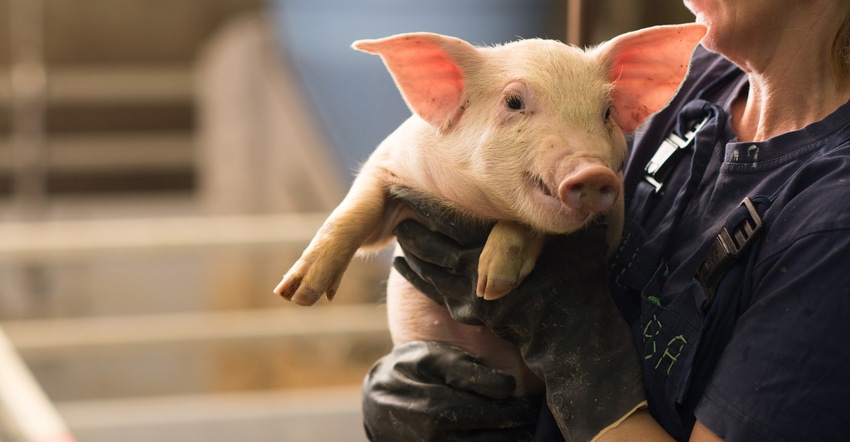February 23, 2022

Earlier this year, USDA officials announced confirmation of highly pathogenic H5N1 avian influenza in wild, migratory birds in five East Coast states.
The disease was detected in the Midwest in February when the Indiana State Board of Animal Health confirmed HPAI in a commercial turkey flock in southern Indiana. This is the first case of HPAI in commercial poultry in the U.S. since 2020.
African swine fever was detected in the Dominican Republic (and subsequently Haiti) in 2021, the first time the infection has been identified in the Western Hemisphere since 1984.
Although it hasn’t been seen in the U.S. in more than 90 years, foot-and-mouth disease is present in about two-thirds of the countries in the world.
What do these events mean for Missouri producers? It means we, in agriculture, need to be diligent about the health of our herds and flocks. We must have biosecurity plans in place — not only to safeguard from a foreign animal disease on our farms, but also to help us navigate if the disease comes to Missouri.
State response to outbreak
In the event of a disease outbreak involving highly contagious viruses, state and federal officials will immediately limit livestock movement to control disease spread. Producers who have a plan in place are in a better position to maintain business continuity, including movement of animals with no evidence of infection to processing facilities or other premises.
Our Animal Health team has made it easy for you to create a plan. Visit our website at agriculture.mo.gov and search for Secure Food Supply. This page is the starting point for pork, poultry, beef, dairy and sheep/wool producers. Click on the plan you need for your farm or ranch. Here you will find information on the importance of a plan and guidance for creating a plan.
The first step is to request a Premises Identification Number with the Missouri Department of Agriculture Animal Health Division by calling 573-751-3377. If there is an outbreak, officials can more quickly establish a control area because of this information, and contact the farmers and ranchers who might be affected. I certainly want to know if there is a highly contagious disease near our family farm.
At the onset of any foreign animal disease, movement of livestock in control areas will be by permit only. A well-developed and implemented plan of biosecurity and maintaining of herd health will minimize economic losses and allow for quicker movement allowances.
Precautions on the farm
As always, biosecurity protocols on the farm are vital. Here are a few basic, well-known biosecurity measures that we all need to be reminded of from time to time:
Be vigilant about cleaning and disinfection of equipment, as well as restricting sharing equipment from farm to farm.
Be mindful with introducing new animals to the herd, and separate sick animals from healthy ones.
Keep chore clothes (particularly footwear) separate from what you wear to town or a neighboring farm.
Have a complete change of clothes on hand before entry into a barn or other animal facilities.
Feed and feed ingredients for all livestock should be stored in a manner that limits exposure to rodents and other wild animals.
Beef and sheep operations might not need this level of vigilance, but producers should still be mindful of pathogens that can unknowingly arrive on the boots or clothes of others.
Poultry operations, including backyard operations, should have control measures to prevent contact with wild birds, their feces and feathers, especially wild waterfowl. Feed and feed ingredients for all livestock should be stored in a manner that limits exposure to rodents and other wild animals.
Price farmers pay
A foreign animal disease outbreak will be costly. Research suggests an outbreak in the beef industry could result in losses of more than $15 billion. Similar loss is possible if African swine fever enters the U.S., with projections even higher if the disease is confirmed in the feral pig population.
Extensive international trade and travel present a constant risk of foreign animal disease entering the U.S. Protecting your farm or ranch with a biosecurity plan through the Secure Food Supply System can help ensure your farm is protected for the next generation.
Chinn is the director of the Missouri Department of Agriculture and a hog producer from Clarence, Mo.
About the Author(s)
You May Also Like




